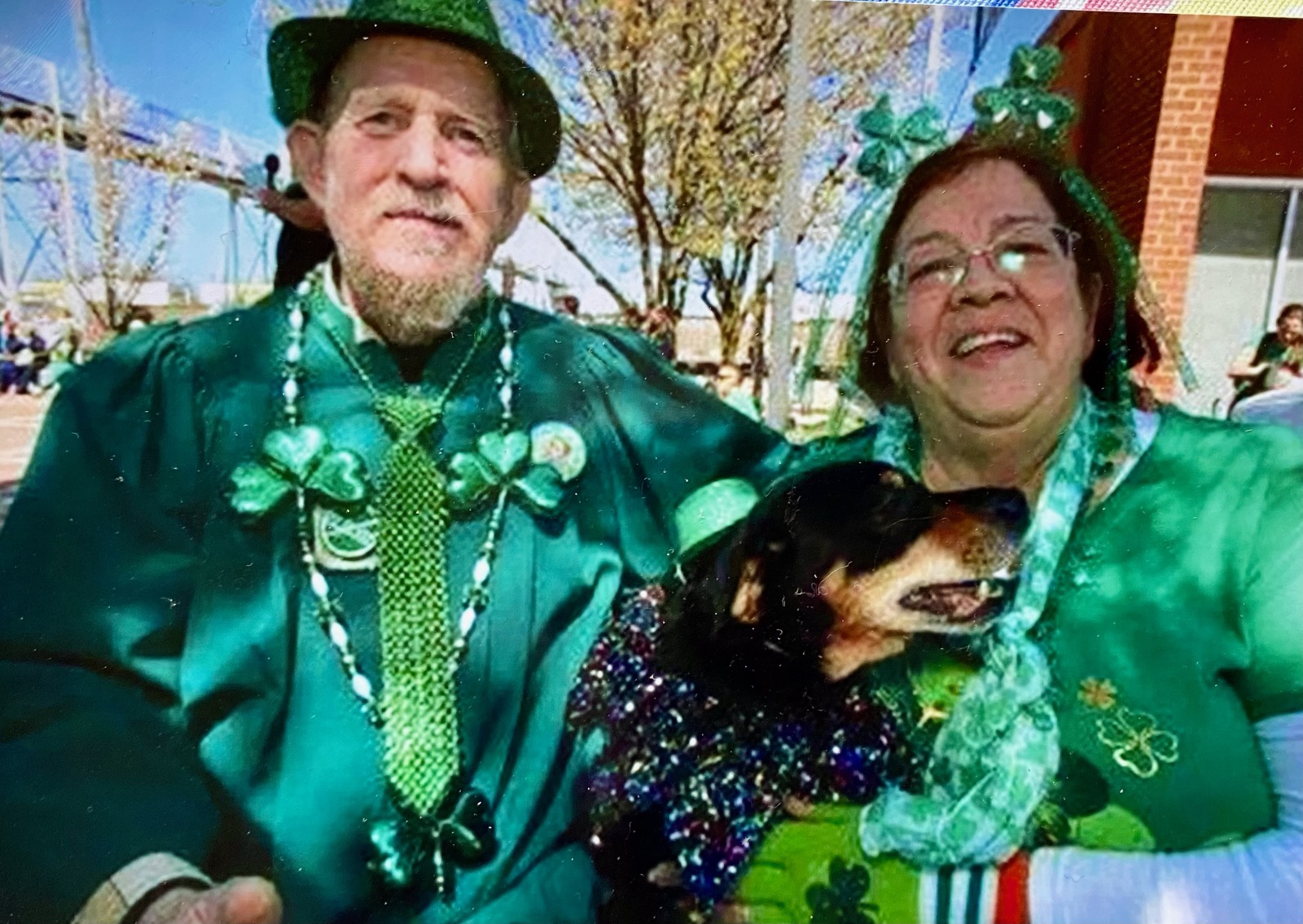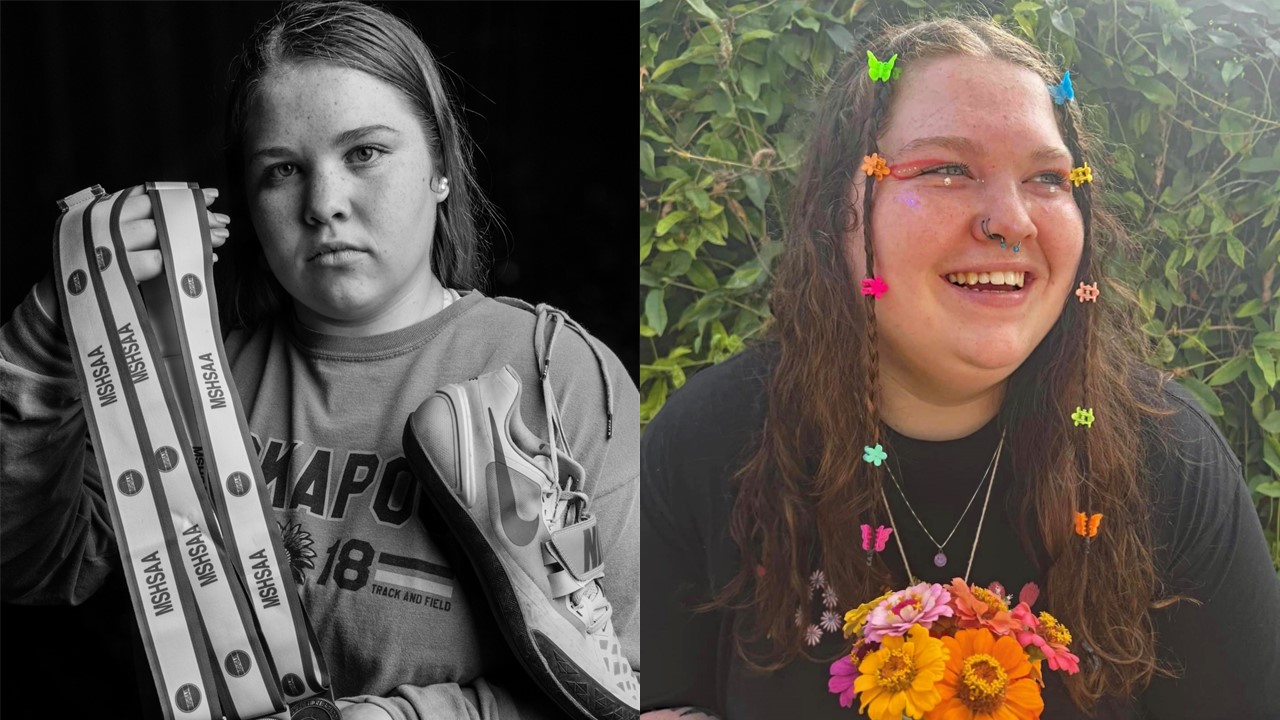When friends remember the life of a classmate, a neighbor, a buddy, the memories usually are of admirable traits, impressive accomplishments, good times.
And there are such recollections associated with the life of Ron Arthur, who died December 5 at the age of 76.
But there also are memories of not-so-good times, of mischief and occasional mayhem, of invisible wounds that Ron carried from his service in the Vietnam War, of difficulties resisting impulsive temptations and avoiding predatory opportunists.
“He could be a little stinker,” says Chris Albert, his closest friend and ally in recent years. “He stood all of 5-4, and I always looked on him as a leprechaun. He was into trickery and he could be mean, but he always had that little glint in his eye.
“You couldn’t stay mad at Ron for long, no matter what he’d done.”
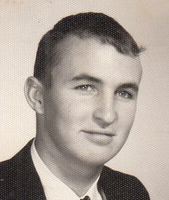
John Sellars says those characteristics were evident back when they attended Glendale High School in the mid-1960s: “You never knew which Ron would show up on a given day. He could be combative, and he was hard to deal with some of the time. But he’d give you the shirt off his back in the next minute.”
Joan Bowen knew Ron through his postings on Facebook about their shared interest in gardening. She only met him in-person once, but nonetheless she felt compelled to attend his December 15th funeral.
“Ron could be so funny on Facebook, talking about flowers, posting pretty photographs — and then next thing he’d be cussing about something,” says Bowen. “I had a brother who served in Vietnam, so I thought the right thing to do was to be here for him today.”
Taylor Sparks, whose house is directly across East Chestnut from Ron’s, marveled at his neighbor’s green thumb, and at the contrast it provided to Ron’s sometimes ornery personality:
“He had the most beautiful flowers I’ve ever seen. It was a treat every time I walked out my front door to see the amazing colorful flowers that he grew. It was quite a juxtaposition.”
An only child, Arthur and his family moved to Springfield in 1956
Ron was born in Gassville, Ark., the only child of Barrett and Ida Lou Arthur. The family moved from Mountain Home, Ark., to Springfield in 1956, and over the next 16 years lived in residences on South Fort Avenue, East Walnut Street and South Prince Lane, supported by Barrett Arthur’s job as a meat salesman.
The Arthurs were active members of High Street Baptist Church. Ron attended Jarrett Junior High and Glendale High schools, graduating from Glendale as a member of the Class of 1966.
The Vietnam conflict was heating up at that time. As a sole offspring he probably wouldn’t have been drafted, or at least he wouldn’t have been posted to hot spots in the war zone. But Ron enlisted in the Air Force, and he determinedly worked his way into the 37th Security Police Squadron as a mortar specialist.
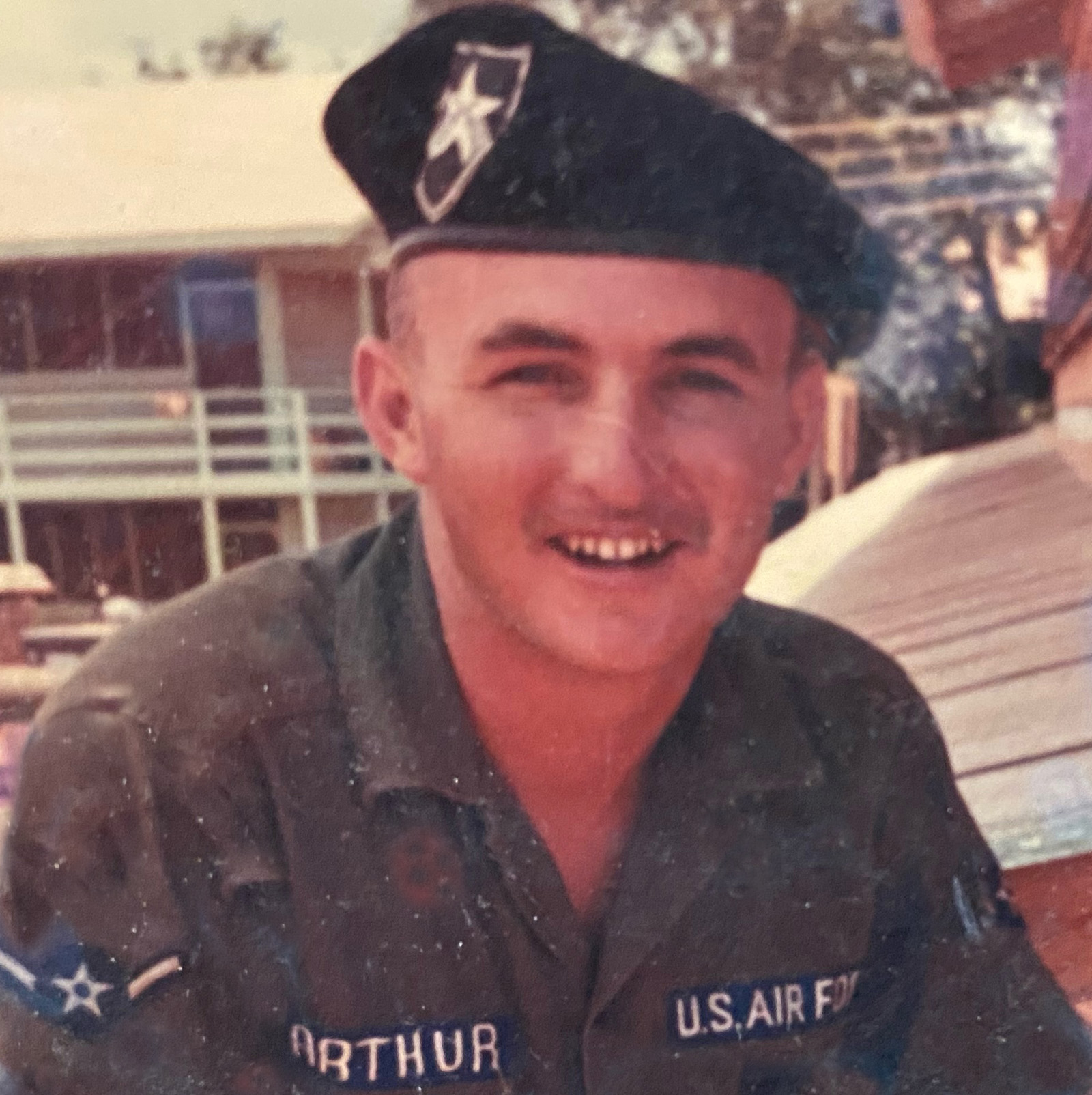
The members of the 37th guarded the perimeters and fought off intruders at front-line airfields such as Quy Nhon and Phu Cat during Ron’s tour, and they also undertook stealthy patrols into enemy territory to launch “delayed illumination” mortar rounds to mark nighttime targets for Air Force gunships.
“He lost friends over there,” says Albert, who met Ron after his return to Springfield. “The Vietnam experience deeply affected — and haunted — him.
“One night we were at a party, and Ron was doing drugs. He disappeared for a while, and we couldn’t find him. Then all of a sudden he came running back into the apartment yelling ‘Oh my god, the tanks are coming! They’re coming over the hill! We’ve got to hide, we’ve got to hide!’
“He was one of those guys.”
‘He loved to grow flowers'
In calmer lucid moments, Ron revealed an artistic side, Albert says. “He was really into photography. He loved to grow flowers — he got that from his mother — and he took pictures of them, and of birds, too. He had boxes and boxes of beautiful photographs. He got into beekeeping, too.”
Ron also enjoyed music, and was an ardent follower of local bands, especially Granny’s Bathwater and the emerging Ozark Mountain Daredevils. “He hung out in clubs and took lots of photos of bands,” Albert recalls. “He loved the idea that the Daredevils were making it, and he would chase them around to Kansas City and other places.”
Ron worked with Albert in constructing the stage for the Finley River Memorial Festival that brought in national acts as well as showcased local talent for a somewhat controversial gathering at a farm east of Springfield in September 1970. And Ron assisted as Albert helped establish and manage a couple of clubs here during that era.
In 1972, Ron’s father took a job as a food inspector for the U.S. Department of Agriculture, and he and Ida Lou moved to a farm outside the small community of Chilhowee, about 70 miles southeast of Kansas City. Ron eventually followed.
In Chilhowee, he met Dave Andrus, seven years younger than Ron, whose family owned an adjacent farm.
“Ronnie and I, we got along fine,” recalls Andrus, who today lives in Nixa. “We had some pretty good times together.
“There was an old hog farrowing house behind the main house on their farm. It hadn’t been used in years and years. Ronnie went in there and cleaned it all out, bleached it, got the stink out, and fixed it up to make it his apartment.
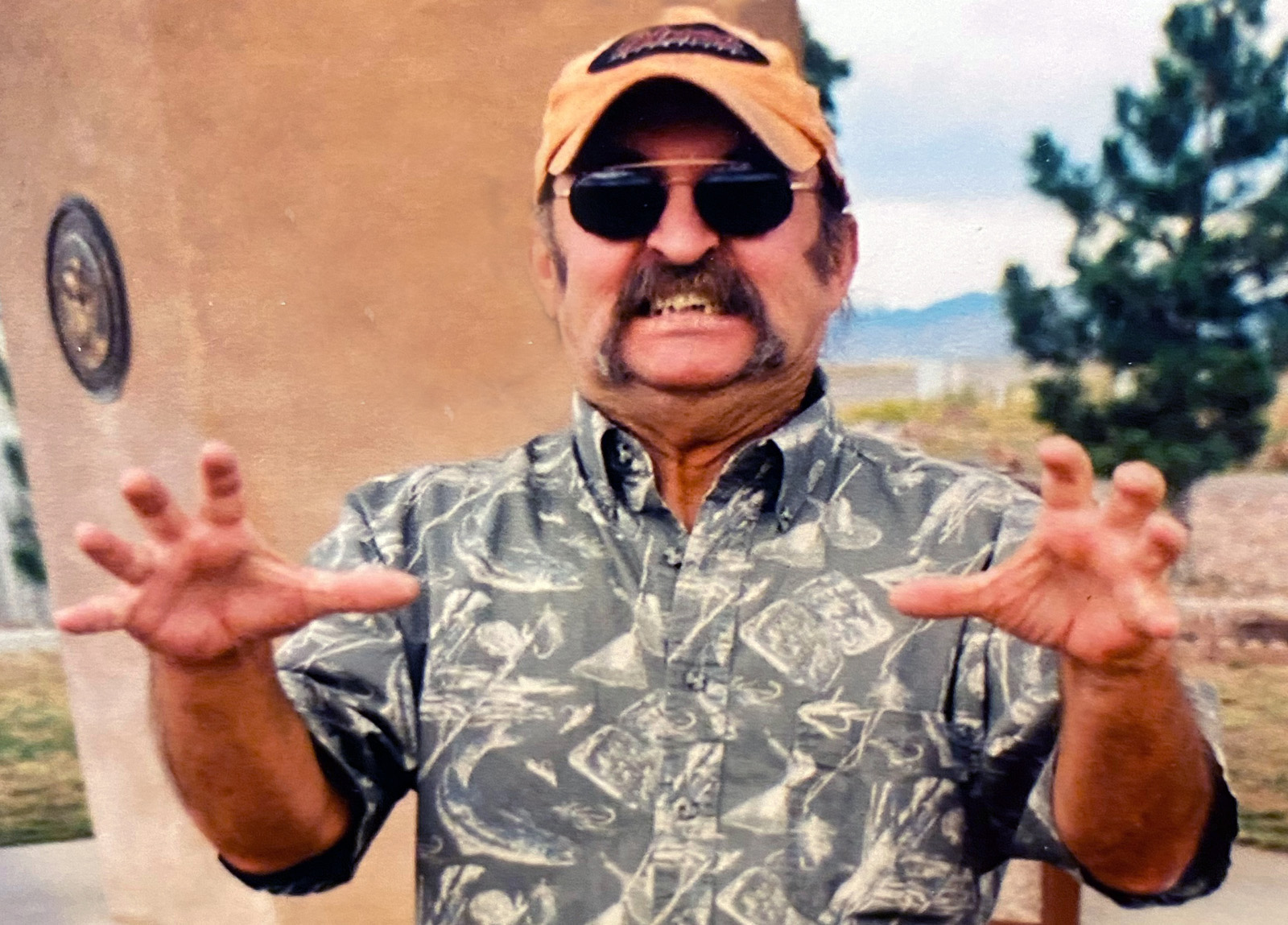
“On Saturday nights, we’d go over there, get all ripped up, find a western movie on TV but turn the volume down, then put on a record from Ernest Tubb or the Nitty Gritty Dirt Band. We’d watch the western and listen to the music, and had a good ol’ time.
“Ron had an old — I think it was a ‘66 — Ford Bronco, and we’d run all over the place in that thing, down through creeks and up over hills,” Andrus says. “We did some stupid stuff, but somehow we survived.”
Ron’s father, who retired after working 20 years for the USDA, died in 1998. Ron’s mother passed away in 2005.
‘When his mom died, he just went crazy'
“When his mom died, he just went crazy,” says Albert. “He decided he was just going to have fun. I never saw anybody who could spend money the way he could.”
Ron received a disability pension because of after-effects from his time in Vietnam, including Post Traumatic Stress Disorder (PTSD), and Chronic Obstructive Pulmonary Disease (COPD) in his lungs. He also was diagnosed with phlebitis in his legs, and had a multitude of heart issues, such as atrial fibrillation and indications of congestive heart failure. Doctors saw evidence of his having suffered four minor strokes. He recently began showing signs of dementia.
He had experienced little trouble receiving loans and financing from banks and other lenders. According to Albert, some took advantage of him.
“His military pension checks were automatically deposited, and the banks would just let him spend the money, and then make $300 or $400 a month from penalties for his bounced checks.”
“He didn’t know how to take care of money. He couldn’t handle it. One outfit gave him a loan at 39.9-percent interest. He got $12,000 into debt with those people on a $3,500 loan.
“The bank would repossess his car every few months because he didn’t pay attention and keep up with payments. Then they’d turn right around and refinance it for him. He bought the same car three different times that way.”
Eventually Ron had to sell the farm at Chilhowee — and when that money ran out, he sought help from his old friend Albert, who was alarmed and angered by what he learned about Ron’s situation.
“He’d been spoiled growing up — his mother wouldn’t let his dad discipline him,” Albert says. “He’d always been given and handed things, and he just never took care of them. He was like a little kid with a toy — he’d play with things for a while, and then just throw them away and go on to the next thing.”
Albert was especially frustrated by the lack of oversight by the Veterans Administration.
“They just tell guys like Ron, ‘Hey, here’s your money, take it and go do whatever you want to do with it.’ They don’t provide counseling; there’s nobody at the VA watching to make sure the wolves don’t take advantage of someone like Ron. These guys are basically just let go to flounder out there on their own.”
Albert says he “hooked back up with Ron seven years ago. It took me two years to get him straightened out, to get him back to the life he deserved because of his service to his country. There were times I was ready to walk out the door. I told him more than once, ‘Ron, if you weren’t a veteran, I’d kick your ass!’
“But that’s the reason I took care of him: He was a Vietnam veteran, and this was my way to give back to one of those guys. I had help from some other people, but basically the fact that he was a veteran is what kept me going.
‘He had grief that he was carrying around'
“I put him on a budget, and slowly weaned him off some stuff. The day he died, he had money in the bank, he had a car paid for and all his bills were paid. It was quite an adventure.”
Sellars, a member of the class behind Ron’s at Glendale, and Ron’s longtime friend Andrus, agree that while Ron had a wild streak in him from the git-go, his time in Vietnam had a profoundly negative effect on the remainder of his life.
“He had grief that he was carrying around,” is how Andrus puts it.
“Vietnam took him and went with him,” says Sellars. “Like it did with a lot of other people — people who might’ve worked their way through it if they hadn’t had this impediment of being haunted by what they saw and did and heard and felt over there.
“Ron was devastated by it to the point that he couldn’t get beyond it. Whatever he was around (in Vietnam), it scarred him.”
Another friend, Larry Robertson, met Ron the first time only eight years ago. In the 1980s Robertson had worked for Dayton Rubber (Dayco) here and was the company’s technical advisor to NASCAR. Ron was a huge fan of the stock car circuit, and for a while spent lavishly to attend races around the country.
“When Ronnie found out what my job had been, he really bent my ear,” says Robertson. “I started taking him to lunch at the VFW, and he wanted me to tell him everything about what went on with NASCAR.
‘Ronnie had a good heart'
“He was a good guy at heart; he really was. I felt sorry for him because of the things that had happened to him, even though a lot of it was partly his own fault.
“I loved him like a brother,” Robertson says. “I’ll always remember him in a good way.”
Andrus, speaking to the two dozen persons who attended the funeral, echoed Robertson’s sentiments: “Ronnie had a good heart. He was a joy to be around most of the time.
“I’m not going to sugar-coat it — sometimes he was a pain in the ass. But shame on me that I didn’t spend more time with him.
“There’ll never be another like Ronnie — thank God!,” Andrus said, prompting laughter from others in the chapel pews.
“But he was a good guy. He was a good friend.”


